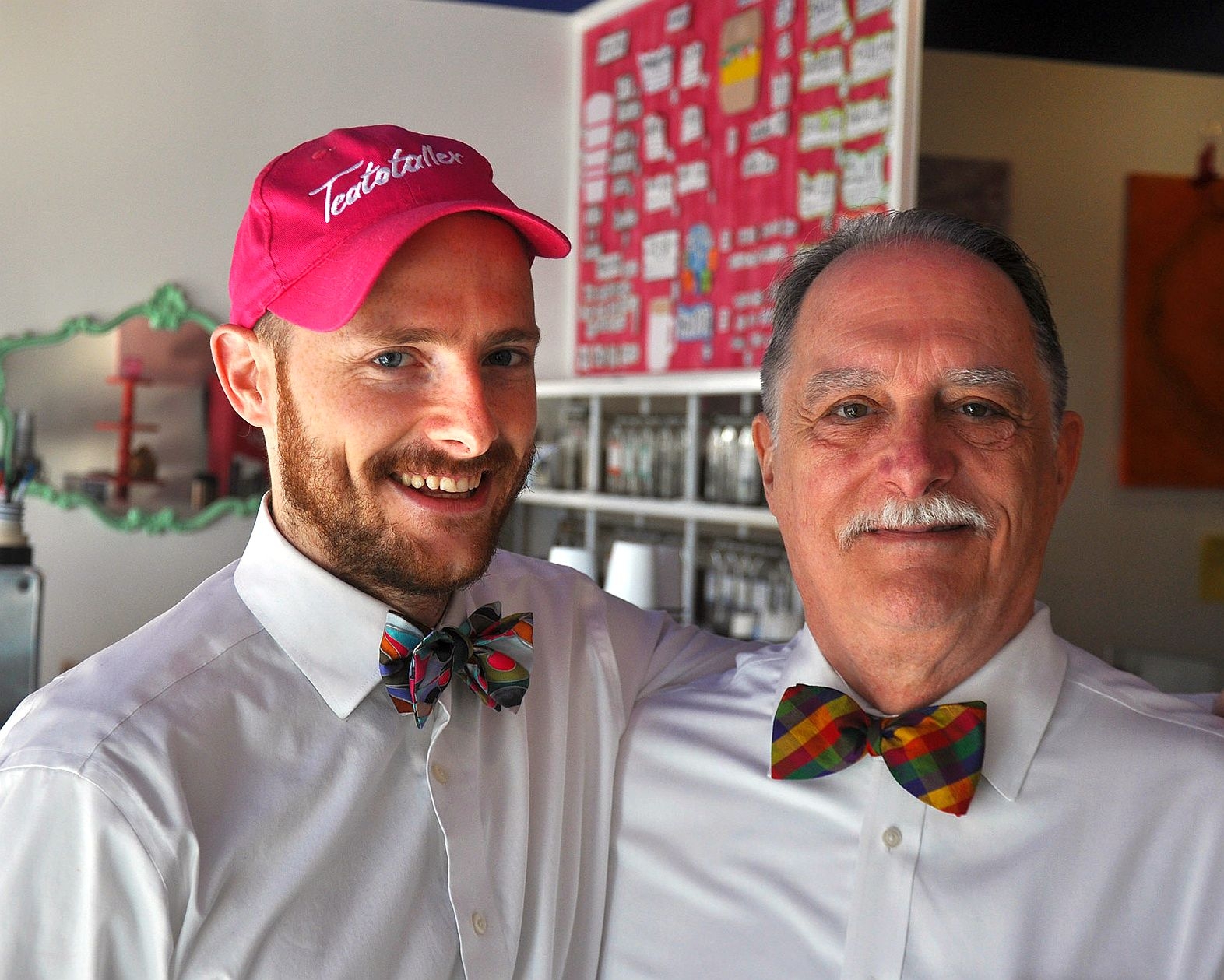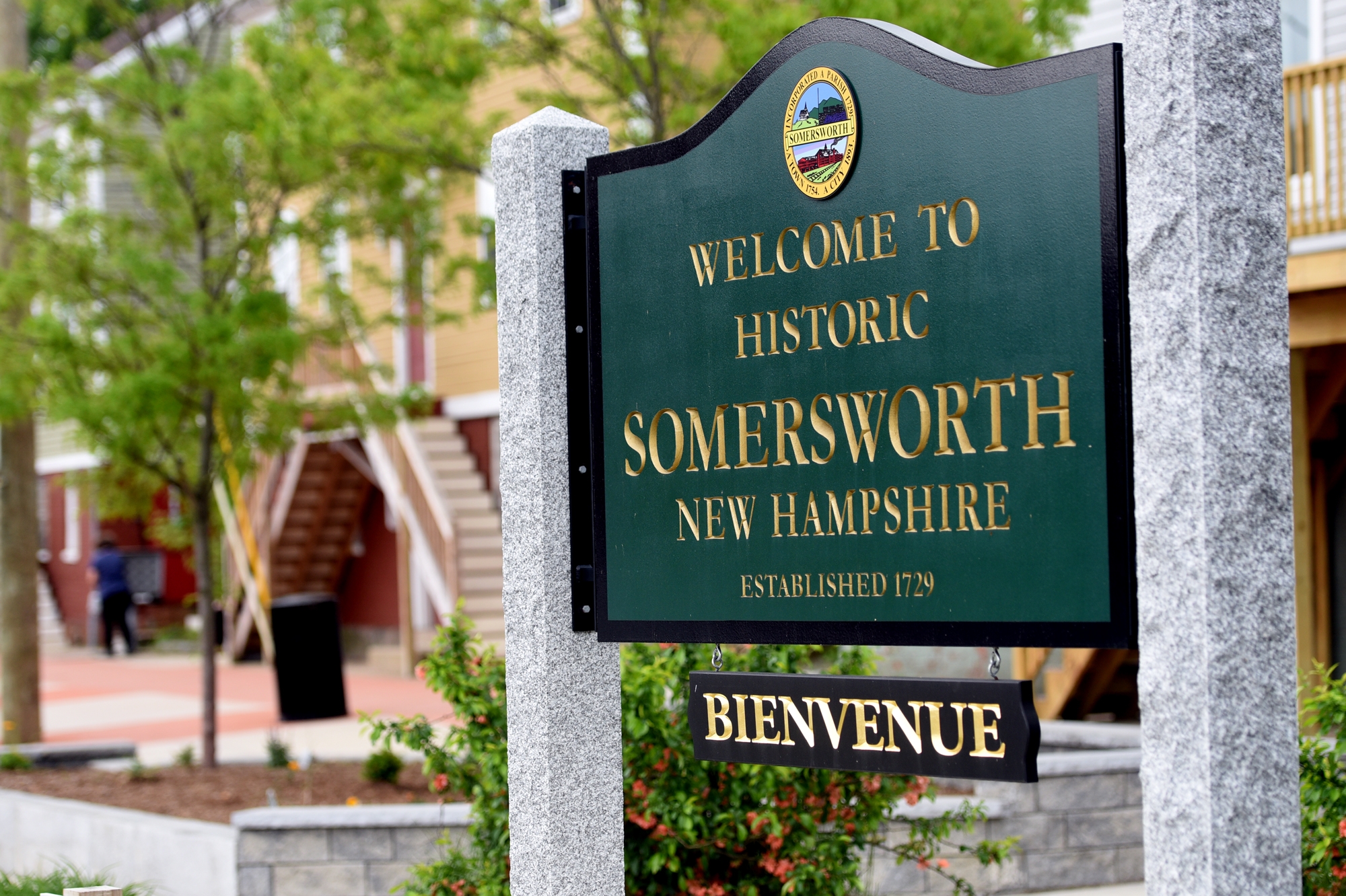
Immigrants, adversity made Somersworth welcoming
As Somersworth celebrates Diversity Month in January, evidence the city is opening and welcoming to the LGBTQ community is strong.
An openly gay mayor, a transgender School Board member who also recently won a seat in the N.H. House, a tea/coffee shop that describes itself as a “queer” business and the rainbow flag flying in a city-owned plaza are some pieces of tangible proof that Somersworth truly is a different kind of community.
But the evidence begs the question: Why Somersworth? Why is the Hilltop City noted for being so open to the LBGTQ community? Why not Dover, Durham or Portsmouth? Aren’t those communities more hip and enlightened? Or, why not Rochester, where there is a Gay Pride celebration and parade every summer?
Several of those most deeply involved in Somersworth say the city’s long history as a home to immigrants and the adversity it faced in the last 30 to 40 years as its manufacturing base crumbled, made it the perfect incubator to grow a community welcoming to all.
“It’s not like Somersworth has magically become something it wasn't. Its strength was always as an immigration hub. That's its identity,” said Dana Hilliard, the city’s openly gay mayor. “Portsmouth’s strength is the ocean and tourism. Somersworth’s strength is its people.
“Diversity has always been here. It was simply a matter of germinating again and getting back to its roots. We have something unique to offer, a sense of community regardless of your ethnicity or sexual orientation.”
Hilliard said his childhood memories are filled with examples of the openness and diversity that helped shape the community. Hilliard’s father was Irish Catholic and his mother was “100 percent French Canadian.” As a Roman Catholic altar boy who spoke no French, Hilliard chuckles about how he always seemed to get scheduled for the 7 a.m. French masses.
Different languages and cultures were just part of growing up in Somersworth, he said, a way of life that led to respect for others and their differences.
“The kids I grew up with were very blind to differences among each other. You were immediately welcomed in,” Hilliard said. The great magic of Somersworth, he said, laughing, can be summed up with the phrase: Who cares?
“Somersworth has a gay mayor. Who cares? I'm Dana Hilliard the mayor. Not Dana Hilliard the gay mayor,” he said.
Hilliard insists the city’s immigrant history and dark economic past helped make Somersworth more open and accepting of all people.
Business owner Emmett Soldati agrees. Soldati, owner of Teatotaller, a cafe self-described as “an oasis of queer, hipster, tea, coffee and pastry goodness. Loose-leaf tea, crafted espresso beverages, edibles and more,” said that to his surprise and delight his “queer business” is thriving in the small city where he grew up.
Soldati said Somersworth is a small community, which makes it more likely for people to have cohesive conversations about things and to have close relationships with their neighbors. That makes it easier to accept people's differences, he said.
He also theorizes that Somersworth’s past economic woes led to a more open community. “There’s an economic argument that Somersworth was a working class, working poor community for a long time, with the largest historic district in the state. It affected who moved into the community,” Soldati said. “It wasn’t the elite upper crust, but families who wanted a nice four-bedroom home.”
The result, Soldati said, was the building of a unique embracing and open community that doesn’t easily exist elsewhere.
“Anytime you have a lower socio-economic community, it changes the makeup and fabric of a place. It’s not mainstream, it’s not generic.” It’s the kind of place favored by artists and students, Soldati added, as opposed to a wealthier community, which becomes “whiter, straighter and richer.”
Tough economic times made Somersworth attractive to people who are expressive, creative and open, according to Soldati. That’s how he felt growing up there and how he still feels about living and working in the community today.
Those moving to Somersworth in the 1980s were a creative, progressive, spirited group of people, Soldati said. They weren’t all gay, “but there’s a sense of getting to know each other and accepting others.”
Soldati’s father Lincoln Soldati remembers those days well. He and his wife, Kathleen, were among the wave of people moving to Somersworth to raise their families.
Lincoln Soldati grew up in Portsmouth and Exeter, but his family had history in Somersworth. “Somersworth is where my grandfather settled when he came over from Italy in the early 1900s,” Lincoln Soldati said.
All of Lincoln Soldati’s aunts and uncles on his father’s side grew up in Somersworth. His uncles were Somersworth High School football players for legendary coach Jeff Francoeur. The Soldatis were Italians in a French Canadian and Irish town, but were welcomed nonetheless and played a big role in the community, Lincoln Soldati said.
Despite deep family connection to the Hilltop City, Lincoln Soldati never intended to live there. He bought a house on a small pond in Warner and after law school was working at Police Standards and Training in Concord.
But then he met Dover attorney Joseph Nadeau, who convinced him to come and work for Nadeau’s law firm on Central Avenue in Dover. Within a couple years, Nadeau was elevated to the state Supreme Court. “I was sold with the furniture, so to speak, when Joe was elevated to the bench,” Lincoln Soldati said.
But Fred Catalfo, another Dover attorney, urged Lincoln Soldati to run for country attorney. “To everyone’s surprise, I won,” he said.
That’s when Lincoln Soldati moved to Somersworth. He and his wife were in love with big old Victorian houses and there was an incredible so-called Queen Victorian with turrets, stained glass and elegant woodwork on top of “the Hill” neighborhood in Somersworth.
It was the house, not the city, that sold the Soldatis, but as the years went by, they fell in love with the community, too. Their Christmas parties at the big old Victorian house were legendary. It was a tradition that lasted 25 to 30 years. “Every single family and person on ‘the Hill’ was invited to the party, which meant 400 invitations went out, mostly to people we didn’t know,” Lincoln Soldati said.
The party was a potluck affair. People brought food and sang Christmas carols. His home became a place where everyone was welcome, no matter the circumstances and some people on “the Hill” were really struggling financially, he said.
Lincoln Soldati went on the serve in Somersworth city government, including eight years on the School Board, and was also elected mayor.
He was serving as mayor in 2010 when tragedy struck. The Soldatis' beautiful, elegant deep olive green Queen Victorian caught fire and burned to the ground.
The Soldatis thought about rebuilding, but it wasn’t financially feasible to replace such a beautiful, one-of-a-kind historic home, and they moved to Portsmouth.
But, Somersworth still holds a special place in Lincoln Soldati’s heart. “No place I’ve ever lived had such a strong sense of community. There was a sense in the community that everyone looked out for each other. There was no judgment and the people were from all economic strata,” he said.
It’s not surprising to Lincoln Soldati that that sense of community has led to Somersworth being so embracing to the LGBTQ community.
What has surprised Lincoln Soldati is that of all his children, his son, Emmett, was the one who ended up back in Somersworth. Emmett left home at an early age, went away for high school, went to college in Canada and completed his education at the London School of Economics.
Emmett Soldati said the foundation for openness was laid years ago and it feels so good living in the community and being himself.
“I feel very comfortable in Somersworth. I feel very accepted. I don’t feel uncomfortable for a moment. I’ve never felt that way in Somersworth. There’s just this inclusiveness. My goal is to shine that light and shine it brighter," Emmett Soldati said.
That’s Hilliard’s goal, too. He said he actually hates the word tolerance, because in some sense it means only begrudging acceptance.
“I like to use the word celebrating. We are all different. Cookie cutters would equal failure,” he said.
To make sure the community keeps celebrating each other, Hilliard plans to make Diversity and Tolerance Month in January a permanent Somersworth thing. Hilliard introduced Diversity and Tolerance Month in the city over a decade ago when he was a Ward 4 city councilor and has kept introducing the measure annually as a time to reflect on Dr. Martin Luther King Jr.'s birthday month and message.
As part of Somersworth’s celebration, Dr. King's portrait is now hanging in City Hall and city schools are focusing curriculum centered on celebrating each other, Hilliard said.
The first reading of the resolution to make Diversity and Tolerance Month a permanent city ordinance will take place Monday, Jan. 7. It will be voted on later this month.
“It certainly is my hope that all nine city councilors will sponsor it with me and pass it unanimously,” Hilliard said.
